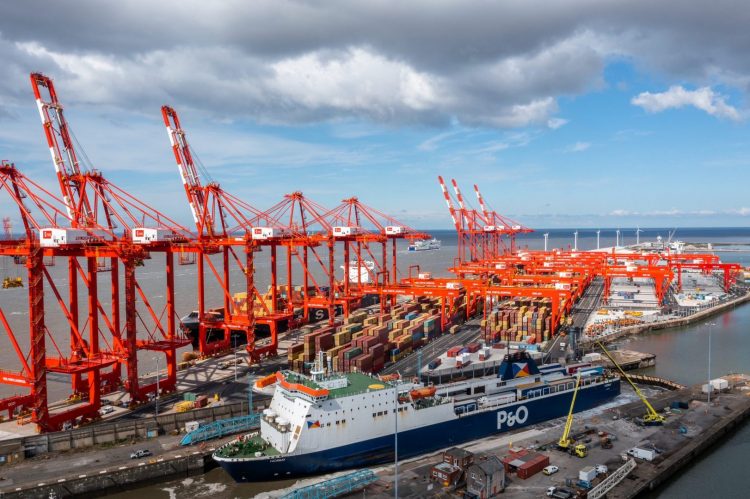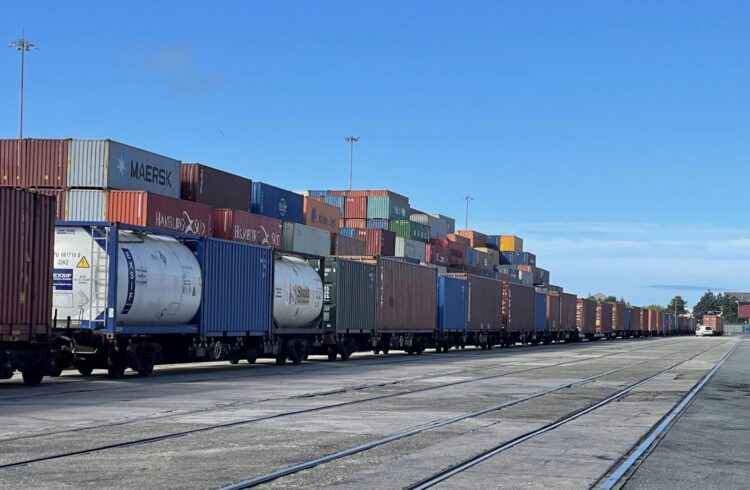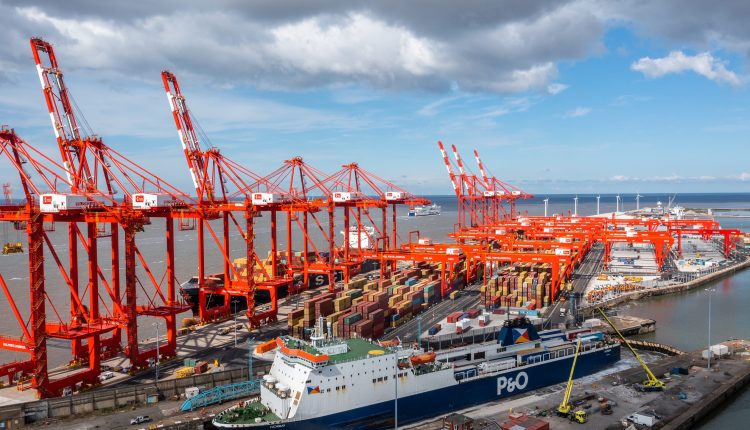Port freight volumes ‘will recover by 2026’
A new report reveals freight volumes at UK ports, including Liverpool, will not recover to pre-pandemic levels until 2026 with the pandemic also accelerating the decarbonisation of the sector. Tony McDonough reports

Ports across the UK may not see a return to pre-pandemic freight volumes until 2026, a new report says.
A snapshot of the performance of British ports was carried out by marine research consultancy Drewry and was commissioned by the UK Major Ports Group (UKMPG), which includes the country’s biggest port operates including Port of Liverpool owner Peel Ports.
It reveals that ports across the UK, including Liverpool, have faced big challenges in 2020 and 2021 thanks to both the COVID-19 pandemic and Britain’s departure for the European Union. It adds that the massive shift towards decarbonisation is also accelerating structural change in the sector.
Drewry forecasts that freight volumes will bounce back to pre-pandemic levels but that it will happen gradually over the next four year to 2026. However, it warns port operators that they will only be able to take advantage of a new period of growth if they continue to invest in the “increasingly post-carbon mix of freight and cargo”.
Tim Morris, chief executive of the UKMPG, said: “There’s no doubt it’s been a challenging period for some freight cargoes. The shocks of the pandemic have compounded long-term structural change. But it’s testament to the resilience of ports that they’ve not only kept 95% of UK trade flowing but also kept investing for the long-term.”
While Brexit and congestion has created problems at southern ports such as Felixstowe, the Port of Liverpool has benefited by shipping companies switching services to the Mersey which offers a more convenient and lower carbon gateway to the north of England and Scotland.
In December 2020 shipping giants Maersk and MSC revealed they were switching the UK call of its TA2 transatlantic container route from Felixstowe to Liverpool. This followed a decision by the companies to switch their TA4 transatlantic route from the southern port to the Mersey in 2018.
And another shipping firm that launched a temporary freight service between China and the Port of Liverpool, decided to offer more Far East sailings due to “overwhelming demand”. DKT also offered a new rail link to and from the port.
The port offers Liverpool2, a £400m deep water terminal capable of handling 95% of the world’s biggest container vessels. It opened in November 2016 and now Peel Ports is investing another £140m to install 10 new cranes at the facility, creating 150 new jobs.
In October, Peel Ports managing director David Huck said: “Congestion in southern ports has long been an issue and there has traditionally been a huge reliance on the south to facilitate the UK’s supply chain. Currently 95% of goods enter the country via the south, yet 60% is actually destined for the north.
“We have long argued the UK is too reliant on the South East and the current climate calls for a serious rethink on the future of alternative regional ports being used as points of entry and exit.
“The UK has excellent coverage throughout the country of ports for every size vessel and every commodity. We need to take full advantage of this by moving goods by sea as much as possible and doing so closest to their point of origin or their destination.”
In terms of decarbonisation, Peel Ports is committing to becoming a net zero port operator by 2040 – 10 years ahead of the UK Government’s targets. It also owns some of the UK’s largest and most important ports including Clydeport, London Medway, Heysham, Great Yarmouth and the Manchester Ship canal.
READ MORE: Maritime sector moves quickly to decarbonise
It has unveiled a number of initiatives and investments to help drive a more sustainable agenda and reach the net zero milestone by 2040 across all of its locations in the UK and Ireland.
By the end of this year, Peel Ports aims to have 50% of its vehicle fleet replaced with electric cars, with the remainder in place by December 2022, and is currently undergoing trials of greener fuels and electric alternatives for the future of its operational machinery and equipment.

The company says it has invested more than £1.2bn across the last decade on sustainable infrastructure and technology. This includes the delivery of energy efficient cranes, LED lighting and choosing sustainable, low emission equipment and suppliers.
The Drewry reports says UK ports suffered a 9% fall in volumes in 2020 versus the pre-pandemic level in 2019 and a further forecast at 5% fall in 2021. However, most cargo types will see turn to pre-pandemic levels in 2022 and 2023.
However the pandemic and further decarbonisation policy and behaviour measures accelerated decline in fossil fuel related cargo volumes. These cargo types remain substantially lower than pre-pandemic levels at the end of the forecast period in 2026.
Brexit is also a factor as, despite an element of normalisation, the one off impact of trade adjustment helps drive a slight shift from EU to non-EU trade volumes and border frictions contribute to the continuing shift from accompanied to accompanied trade volumes for EU trade.
The report adds: “Beyond the forecast period the strategic reshaping of the cargo landscape is expected to continue with ongoing challenges for traditional energy products, a significant requirement for port operators to invest in zero emissions infrastructure but also opportunities from new fuels and services such as hydrogen and carbon capture.”

